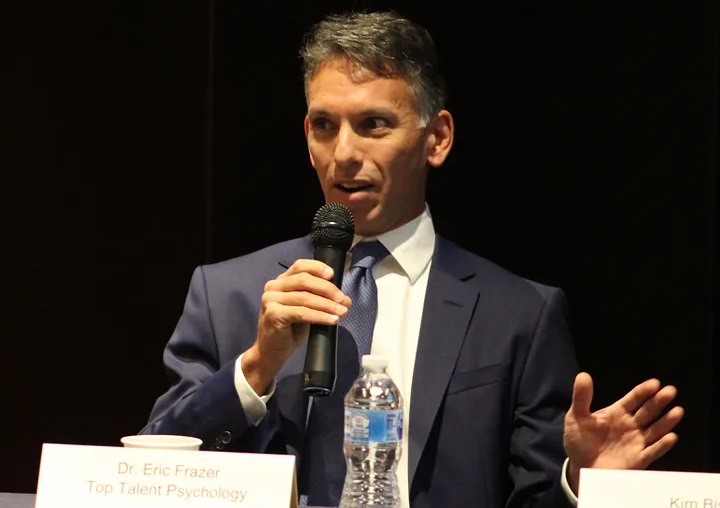
In the professional world, there is immense focus on finding the right job, building the right team, and becoming a better leader. But what if we’ve been focusing on the wrong things all along? What if the real game-changer is how we think, learn, and grow as people?
In this interview, I spoke with Dr. Eric Frazer, a psychologist and leadership coach who helps identify and shape high performers. Read on to know which skills matter most in today’s workforce, why emotional intelligence is more than a buzzword, and the truth about imposter syndrome.
1. Who do you believe has the most untapped potential in today’s workforce? How can leaders best identify such people?
A successful person in today’s workforce has two core competencies, which fall into the domains of technical competencies and psychological competencies.
For technical competencies, having a core technical skill, or simply put, a useful skill that can be applied to the innovation of a service or a product, is essential. For soft skills or psychological competencies, possessing a curiosity to learn is essential as a mindset. That is the fuel for continuous learning.
People who possess these competencies will continually succeed because of their commitment to ongoing professional development.
2. Where do companies typically go wrong when it comes to recruiting or retaining top talent, particularly with Gen Z and millennials?
Companies that successfully recruit utilize a proven scientific methodology to identify top talent based on their past proven accomplishments. These accomplishments are verified and corroborated by checking references. Historically, we used to call these “character references”, but from a psychological standpoint, what is really being asked is, “Does this candidate relate well with others ?”
Relating well with others is essentially a personality-based trait and encompasses the capacity for emotional intelligence. Emotional intelligence contributes to one’s ability to be an independent high performer and a solid team player who understands and appreciates complementary reciprocity when working on a shared goal.
To retain these high performers, successful companies heavily invest in their professional development. This takes many forms and includes a deep understanding of work-life balance, and doing so in a personalized manner that is not one-size-fits-all.
3. What mindset does a professional need to achieve meaningful personal and professional growth? And when is the right time for someone to work with a leadership coach?

To engage in meaningful personal and professional growth, it is necessary for one to have a humble mindset and a commitment to self-awareness to understand one’s strengths and weaknesses. This creates an objective mindset with an appreciation for continuous learning, and the mindset that every day is an opportunity to practice a skill or leadership trait that contributes to continuous high-performance.
All successful people have a leadership coach on a routine basis. This allows for a constant feedback loop for personal and professional development that accelerates one’s ability to succeed. All one needs to do is look around at successful professionals, athletes, artists and musicians, and any other individual who has a proven track record of success. These individuals practice their trade and skills deliberately and are routinely developed by coaches and mentors along the way.
4. You believe that imposter syndrome doesn’t exist. Please shed some light on why so many high-achievers feel like frauds. What exactly is going on in their minds?
People have a fundamental insecurity that comes from an irrational fear of not having all the answers all the time. When people have this experience and they have a leadership position and earn a significant amount of money, they sometimes become trapped in a mindset that has been referred to as imposter syndrome. I like to remind people that when they have this experience, it is likely not based on reality, and they would likely not be in the position that they are in if they were imposters.
Successful people do not buy into this concept of imposter syndrome, but instead recognize that nobody knows everything. They also know when there is a question or a problem that needs a solution, and the answer is not immediately evident, the thing to do is find a solution, and not dwell on irrational thoughts about not having that information immediately on hand.
Dr. Frazer is a leading psychologist with over 20 years of experience in psychological assessment. He is also a leadership coach who helps individuals and organizations create positive mindsets, habits, and change for sustained success.

